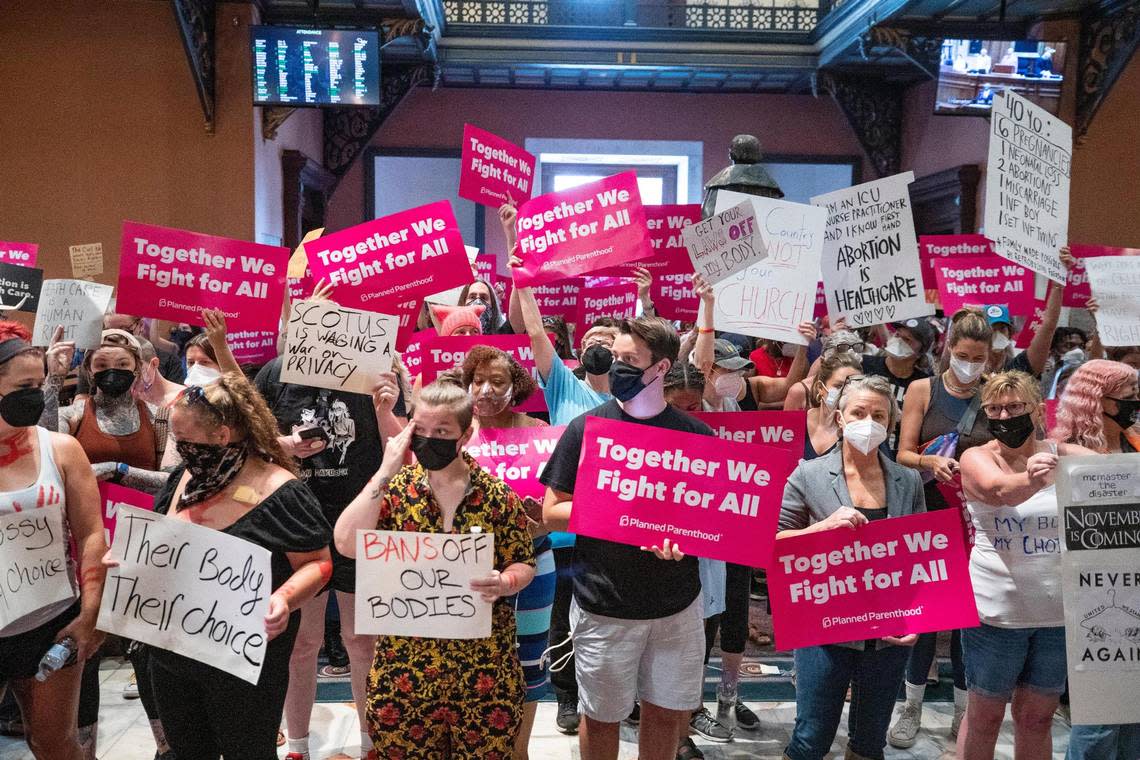Judge could temporarily block SC’s 6-week abortion ban again as law heads back to court

South Carolina’s six-week abortion ban is heading to another court battle, but this time over whether the ban violates a person’s constitutional right to privacy.
A hearing has been scheduled for the morning of July 26 in the Richland County courthouse in downtown Columbia, where a judge will consider a temporary restraining order and preliminary injunction request from plaintiffs Greenville Women’s Clinic, Planned Parenthood South Carolina Atlantic and two physicians.
If the court rules in favor of the plaintiffs, the six-week abortion law will be temporarily blocked, allowing for legal post-six-week abortions to resume in South Carolina.
The group sued South Carolina in state court last week over the current six-week abortion ban, citing violations of the state constitutional right to privacy and equal protection.
The plaintiffs are being represented by Planned Parenthood Federation of America, the Center for Reproductive Rights and the Columbia law firm Burnette Shutt & McDaniel.
“Without court intervention, South Carolinians will continue to suffer in a state with dangerously high rates of maternal mortality and infant mortality, particularly among Black women and babies,” Jenny Black, president and CEO of Planned Parenthood South Atlantic, said in a statement. “We urgently need this court to reject Senate Bill 1 for what it is: a direct assault on our health care, our lives, and fundamental human rights.”
In response to the lawsuit, Attorney General Alan Wilson and other defendants said the temporary restraining order is “not likely to succeed on the merits of their claims.”
Gov. Henry McMaster told reporters after the lawsuit that he considers the ban a “good law.”
South Carolina’s current abortion law requires doctors to perform ultrasounds on pregnant patients to detect fetal cardiac activity, typically around six weeks when critics argue most don’t know they’re pregnant. If fetal cardiac activity is detected, the doctor cannot perform the abortion, unless in the cases of rape, incest, danger to life of the mother or fetal anomaly.
The six-week ban was passed in the S.C. Legislature in 2021, but was temporarily blocked over questions of its constitutionality.
When Roe v. Wade, the landmark U.S. Supreme Court case that federally protected the right to an abortion, was overturned in June, McMaster filed a request to lift the court’s injunction on the law.
The law took effect June 27 — three days after the overturn of Roe.
A federal appeals court Thursday lifted an injunction on the six-week law, preventing the federal government from further blocking its implementation.
